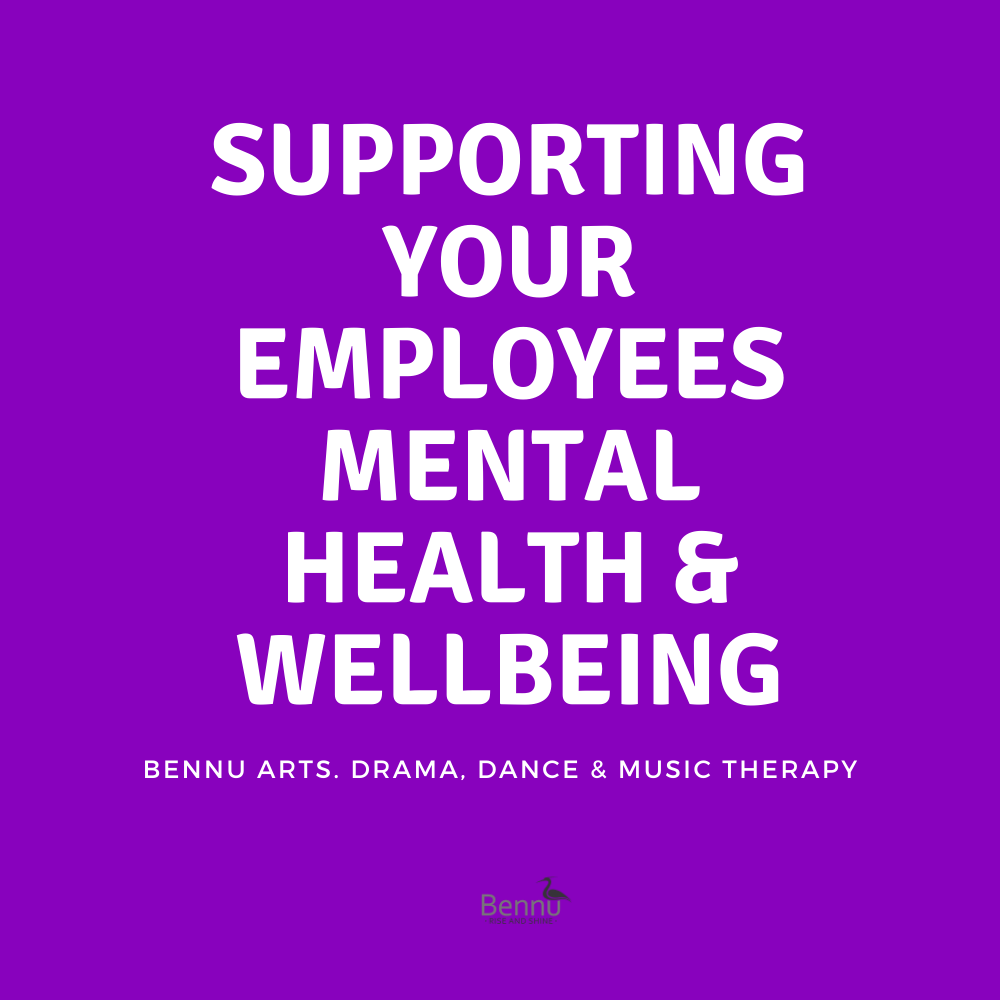The last year has been pinnacle for almost everyone. With the pandemic, lockdown restrictions and many more work changes, this has meant we have all had to make lifechanging adjustments. In this blog, we will discuss different ways you can look to encourage healthy wellbeing amongst your staff and ways to promote positive mental health practises in the workplace. We also look at the different signs to spot mental health declining in staff, and what you can do if you notice one of your employees or colleagues may be struggling with their mental health and wellbeing.
Before we get into today’s blog post, we want to continue to thank all critical workers, teachers and NHS staff for their continued hard work throughout this pandemic – truly you are our nations heroes! It is great to see children and young people back at school.
Our thoughts continue to be with those who have lost loved ones and who have been struggling with their mental health. Our website has resources for those who are struggling with grief and mental health issues. Please do get in contact with us here if you would like to enquire with a specialised therapist.
Firstly, let us look at why you as an employer should take interest in your employee’s mental health and wellbeing. Staff spend so much of their time at work. People give the best of themselves to their employers and deserve the same back from the workplace, this means organisations taking responsibility to promote and provide ethical wellbeing strategies and resources for ALL staff. It is also in the best interest for organisations to take interest in their colleague’s wellbeing as when people are experiencing positive support from their employers and are mentally empowered, we can give the best of ourselves at work. So how should you go about as an employer to support your staff as much as you can with their wellbeing? Just continue to read!
What does is mean to have good mental health and wellbeing practices at work?
Good mental health at work means employees feel supported by their employer if they are experiencing anything negative in relation to their mental health. Workers feel they have purpose at work, are treated fairly with dignity and made to feel they are valued in their workplace. Employees know who they can turn to if they are experiencing negative wellbeing in both their personal and work life. People with mental health issues are not made to feel any less than those with stable mental health.
Common mental health and wellbeing issues in the workplace
- Anxiety
- Bereavement/loss
- Burnt Out
- Life changes
- Stress
Spotting the signs in an employee or colleague who may be struggling
Whilst we all have our bad days where we may be feeling down and low mood, if you notice the following signs more frequently in a colleague you may want to think about what to do next (more information on this can be found below.) These are a few common signs you may notice.
- Seems more down and in lower moods more often
- Seems more stressed
- Seems more frustrated and flippant
- Generally, does not appear to be happy
- Not as engaged with others
- Does not seem to want to interact as they usually would and seems to be more isolated
- Is more sharp toned and seems to be short tempered
- Seems overly tired
- May be more tearful
- Is not eating on their lunch break
- A decline in their usual work output
As many are working from home, it may be harder to notice the signs that a colleague may be struggling with their mental health. Here are some of the signs you may still be able to pick up from.
- Does not seem as talkative in meetings
- Appears to have their camera off a lot more than usual (although this may be for several other reasons so it may be helpful to clarify and not jump to conclusions.)
- Does not seem to attend any work online social events but was previously very engaged
- Sounds and looks down when you engage with this colleague virtually
What to do if you think a colleague may be needing support with their wellbeing and mental health
Whilst it is great to pick up on some of the signs that a colleague may be struggling with their mental health and wellbeing it is also important to remember that they may feel perfectly okay but reaching out is always better than staying silent. Here are a few ways you can support your colleague.
- Reach out to your colleague by having an informal conversation. Start by asking your colleague the simple question: ‘Are you okay? Are you really okay?’ ‘How are you feeling?’, ‘ I just wanted to check that you were okay because I noticed…’ This opens the opportunity for your colleague to open up to you on what they may be experiencing.
Tip: Not everyone will want to talk, do not take offense to this but let them know if they ever do want to speak you are there.
- Invite them for a catch up either in person (adhering to lockdown restrictions) or online. Seeing a friendly face and hearing a familiar voice may boost their mood and confidence that they have a supportive colleague who they can turn to
- Report anything that concerns you to your colleague’s line manager. (following your safeguarding and company/organisations ethical procedures)
- Encourage your colleague to do an activity that may help them clear their mind such as: going for a walk, journaling, exercise or meditation.
Tip: If you know what your colleagues’ hobbies are think about asking them when the last time was that they engaged in that activity? For example, if you know that your colleague Sue loves to swim, you can encourage Sue to go for a swim and if their favourite activity is restricted due to Covid-19, perhaps you can discuss an alternative or something else that may make them feel more uplifted.
- If your colleague has told you, they are struggling with their mental health and wellbeing ask them what they would like to happen? What would be the best outcome for them?
- If you do not feel comfortable talking to your colleague about their mental health or are unsure what to do, consider, talking to your organisations HR department for some advice or Employee assistance programme if offered at your workplace.
Tip: Whilst we are sure you care about your college wellbeing and mental health it is important to keep in mind your own. If at any point you feel you are becoming distressed by supporting your colleague with their mental health, please look to contacting HR and removing yourself from this situation. Two people experiencing a decline in mental health is not a good outcome and you must also protect your own wellbeing.
Ways to promote positive mental health and wellbeing practise in the workplace
- Frequently remind staff that their wellbeing is important and should be taken as seriously as their physical health.
- Encourage line managers to have frequent check-ins with their staff.
- Promote and set healthy work life boundaries.
- Let staff know the support available to them if they are struggling with their wellbeing.
- Consider implementing an employee support programme into your organisation if you do not have one. Check out Bennu’s employee and corporate packages that we have available by contacting us here
- Run different workshops, events and webinars to educate your staff in their mental health and wellbeing practises. Check out Bennu’s employee and corporate webinars that we have available by contacting us here
- Do not overwork your staff, do not pressure staff into taking overtime if they do not want to
- Encourage staff to take regular screen breaks if working from home.
- Let your staff know how valued their work is and appreciated.
- Ask questions to colleagues in a kind manner if you think they may be struggling and do not come across judgmental, pushy or that you have made assumptions.
- Practise regular self-care and mindfulness. We have lots of free resources available on our website! Check out our other blog posts below (link to other blog posts)
Tip: Listen to our free guided meditation here to unwind, reflect and practise mindfulness.
We hope this post has helped you reflect on mental health in the work place and how to support your staff and colleagues. As ever, we are here for you. Please do get in contact with us here to speak to a therapist or to discuss how Bennu can support your company/organisation.
Please do also look at the useful links listed below and share this blog post with another colleague or friend if you found it useful.
Take great care of yourself,
Bennu 😊
Other related blog posts
Useful links on Coronavirus (COVID-19)
NHS Information on Coronavirus (COVID-19) – https://www.nhs.uk/conditions/coronavirus-covid-19/
UK Government Information on Coronavirus (COVID-19) – https://www.gov.uk/coronavirus
Useful Links For Mental Health
https://www.nhs.uk/using-the-nhs/nhs-services/mental-health-services/
Emergency Mental Health Help
You call UK emergency services by dialling 999





